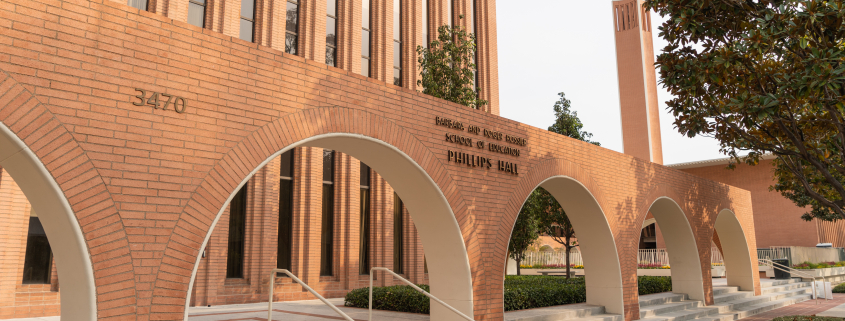Grant aims to support gang-associated youth

The USC Rossier School of Education’s Pullias Center for Higher Education and Long Beach City College are collaborating on the Phoenix Scholars program, which aims to support gang-associated youth on their path to obtaining higher education.
The program expects to welcome its first cohort in the fall and is funded by a $990,000 grant from the Fund for the Improvement of Postsecondary Education that extends over three years. LBCC Phoenix Scholars is the only recipient of the United States Department of Education grant.
“This is a college access and success program for individuals that are 16 to 24 years old that are currently or formerly gang-involved or gang-impacted,” said Adrian Huerta, who works at the USC Pullias Center and will serve as co-principal investigator in the project. “It’s really about making sure that [the youth] have all the chances, support and infrastructure that they need in order to graduate from college.”
Huerta is a national expert on college access for young men of color and gang-associated youth, and will be responsible for creating projects and training faculty and staff of the program to understand how to work with the targeted population.
Although the grant will be disbursed over a three year period, the hope is that by the end of the period, the project will be self-sustainable, said LBCCD Superintendent-President Mike Muñoz. The grant will allow students to access various resources beyond educational tools, such as success coaches and mental health professionals.
“What the grant allows us to do is build a comprehensive set of infrastructures and support for gang-associated youth in a way that is sustainable beyond the life of the grant,” Muñoz said.

“Dr. Huerta is an amazing scholar and expert in gang-affiliated youth. We are so pleased for him to receive this important grant and look forward to supporting him in the coming years,” wrote Adrianna Kezar, director of the Pullias Center for Higher Education, in a statement to the Daily Trojan. “We are also excited about the collaboration with Long Beach City College. Our center has long partnered with local schools and colleges to improve the educational experiences in the local area.”
Two types of challenges are expected: institutional barriers and external barriers, Muñoz said. Students may not feel comfortable disclosing their affiliation with gangs, he said, which would hinder the process of getting them into the program. Additionally, due to negative experiences with educators in the past, they may not feel welcome to access the resources Phoenix Scholars will provide.
“The other potential barrier that we see is making sure that our college, our offices and support systems are warm and welcoming affirming places for our students,” Muñoz said. “We don’t want the Phoenix Scholars program to be the only safe environment for them. We want to make sure that all of our offices and all our programs are supportive and affirming.”
Additionally, some external barriers students may face are housing insecurity, food insecurity and difficulties finding jobs and getting hired, Muñoz said. The program will also seek to support students in these aspects as part of its holistic approach. Ultimately, the program seeks to empower the students and remove barriers that may prevent their success at college, Muñoz said.
“Many of our young people who have been labeled as gang-affiliated don’t see themselves as college material or feel like they can’t fully access our support services,” Muñoz said. “I’m really excited about the opportunity to, as an institution, be declarative. College is for them and we want to support them. We want them at LBCC and create an environment that really empowers them, liberates them and supports them to ultimately reach their educational goals.”

